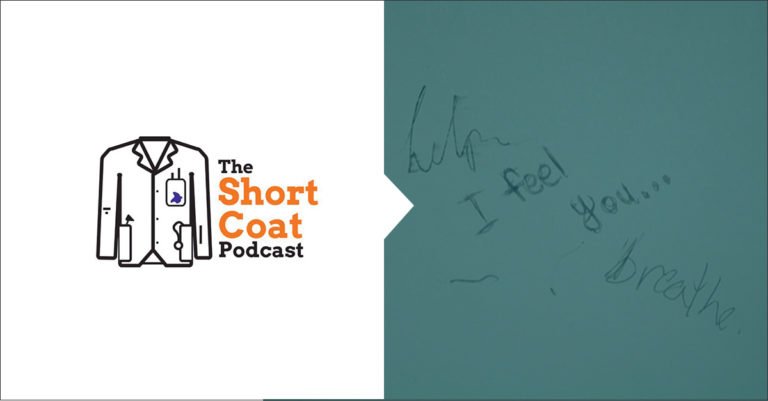
How would you manage this acute abdominal pain?
A 24-year-old sexually active female presents with a three-day history of severe right upper quadrant ... Read more
Written by: Figure 1
Published on: August 25, 2018
Learn about medicine and how to become a physician in our articles for pre-medical students (including the MCAT), medical students, resident physicians, and practicing physicians.

A 24-year-old sexually active female presents with a three-day history of severe right upper quadrant ... Read more
Written by: Figure 1
Published on: August 25, 2018

More great stuff from the SHPEPers at CCOM Our visit with pre-health students in the ... Read more
Written by: The Short Coat Podcast
Published on: August 25, 2018

Medical journalists and researchers have a responsibility to perform meaningful, reproducible research to guide the ... Read more
Written by: DocThoughts
Published on: August 24, 2018

I’ve just started my fourth year, and while it’s a relief to be done with ... Read more
Written by: Adelle
Published on: August 20, 2018

A live stage show featuring the stories of healthcare providers is now a podcast you’ll love. ... Read more
Written by: The Short Coat Podcast
Published on: August 17, 2018

Becoming a physician requires a lot of planning. You have to plan which college to ... Read more
Written by: Renee Marinelli
Published on: August 16, 2018

Are you learning to write a prescription? It’s not that difficult once you know the ... Read more
Written by: Kunal Sindhu
Published on: August 15, 2018

A 62-year-old female, G3P3, presents to her gynecologist with a year-long history of worsening stress ... Read more
Written by: Figure 1
Published on: August 10, 2018

Mentorship and Examples are critical. The Summer Health Professions Education Program, SHPEP, has become a ... Read more
Written by: The Short Coat Podcast
Published on: August 10, 2018

In recent years, the multiple mini interview (or MMI) has gained popularity with medical school ... Read more
Written by: Cassie Kosarek
Published on: August 8, 2018

Unsuccessful medical school applicants face a quandary. What to do next? A popular option has ... Read more
Written by: Monya De
Published on: August 6, 2018

A three-year-old African American boy is brought to his new pediatrician over concerns of poor ... Read more
Written by: Figure 1
Published on: August 3, 2018

Executive Producer Jason has kindly let Dave go on vacation, so Aline Sandouk takes over ... Read more
Written by: The Short Coat Podcast
Published on: August 3, 2018

Can you recall moments in your adolescence when you were completely living in the moment, ... Read more
Written by: Amy Rakowczyk
Published on: August 2, 2018

Changing dressings on diabetic ulcers is not particularly pleasant. The oozing, the meticulousness of laying ... Read more
Written by: Renee Marinelli
Published on: July 30, 2018

A 28-year-old female presents to the emergency department with an occipital headache and neck pain. ... Read more
Written by: Figure 1
Published on: July 27, 2018

It is Friday afternoon at 4 pm. I’m headed to see a consult while simultaneously ... Read more
Written by: Kara Hessel
Published on: July 26, 2018

Dr. Ike Anya is a consultant in public health medicine, writer, honorary lecturer in Public ... Read more
Written by: Gloria Onwuneme
Published on: July 23, 2018

A 65-year-old male presents to his family physician with complaints of increasing fatigue, dyspnea on ... Read more
Written by: Figure 1
Published on: July 20, 2018